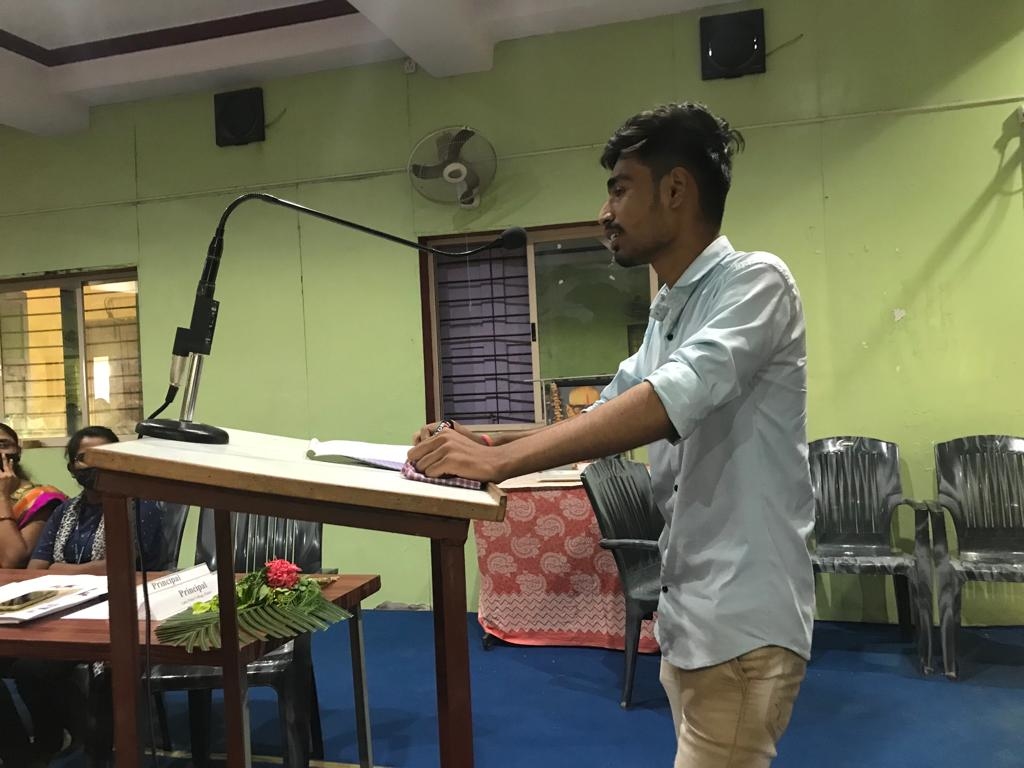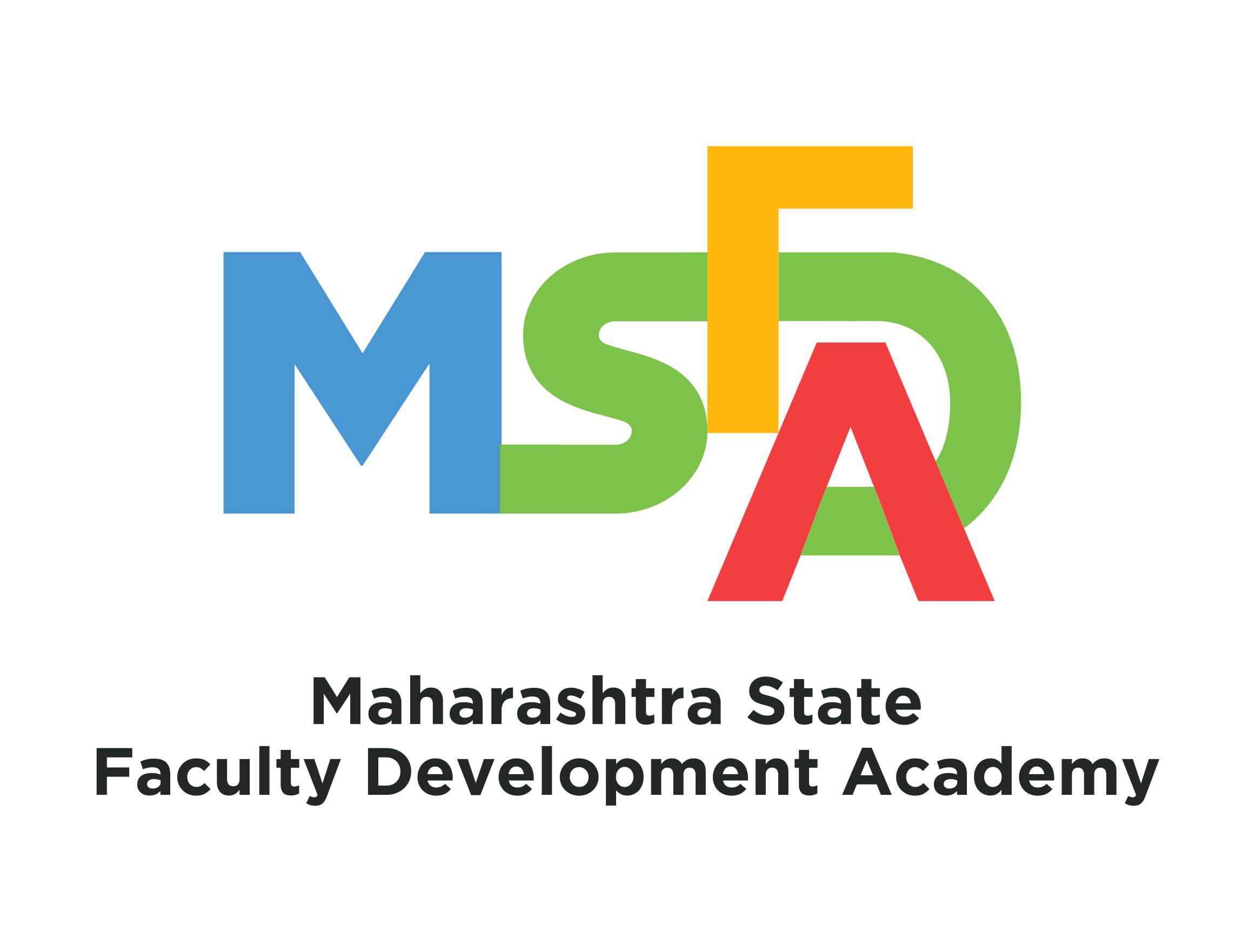A boy stood up in the last, just when the programme was winding up and looking at the banner of the programme – “Impact of higher education” said -“I want to speak on this”. He continued – “I am 33 year old and was earlier doing a business. I was married, had a small child… the business failed fue to some rift with my business partner and i had a huge loss of 15 lakh. It was a jolt ..i realised that i had a loss because of lack of knowledge of some legal clauses that my partner used.. I thought of then studying ‘law’ to understand those clauses so that i can never be ditched again. My wife who is now handling my business supported me, i support her, we support each other .. I therefore, joined law college and am in my final year now. Simultaneously i am learning acoounts, finances, economics so that i am able to understand my profit and loss, balance sheet.. i think my learning is making me strong and confident and it can only pull me up.. i intend to continue learning throughout..”
We were interacting with students from some colleges of Ahmednagar district in Maharashtra. The district is a medium-developed town with nearly 140 colleges, mostly unaided. The students were from various disciplines – arts, science, commerce, law, engineering etc. Many of the students were NCC/ NSS participants.
A participative discussion was organised on the topic – “What would be your most memorable memories from the college”. The students shared interesting aspects – memories of a college campus and every site in it – especially the ‘adda’ or gossip centre, fun in festivals, theatre, ‘ragda’ (a strenous almost torturous physical training in NCC), moot-courts, debates etc. The students had fun in celebrating festivals or ‘days’ when they would do some group activities. They also shared inconvenient spaces (parking lots!) where eve-teasing happens.
The discussion also veered into many other things. A girl shared how she could not understand why girls were not participating in ‘shot-put’ and therefore, she took the lead and did participate – even if her wrist pained for two days. She also was learning Kathak and explained various hand movements. She asked why she couldn’t study Mathematics and dance at the same time. A boy shared his moot-court experience and how they enjoyed the role play and how in a jiffy, after the entire trial, the opposite judgment got blurted out. A girl spoke of the marks system leading to the whole education being focussed on cramming and obtaining marks and whether a better assessment that promotes learning could be thought of. An engineering student mentioned why the coding language in vogue was not taught in her college –
she knew the coding language taught in her college, but she was not selected by the industry because they said it was outdated. The students spoke with zeal, spoke collectively without oneupmanship and there was honesty.
The responses of students underlined some pointers towards good education. A ‘campus’ is always remembered – and while for ‘lack of space’, there is a view that learning spaces can be accomodated in smaller functional areas, the sparkle in students eyes reminiscing a ‘spacious green’ campus is unmistakable.
It was also observed that the so called ‘extra-curricular’ activities – annual days, celebration of festivals, theatre, NCC, NSS, special ‘days’ were most fondly remembered. When i was in school, such extra-curricular activities were minimal – one period out of eight was devoted to them. These may have increased over time variably in different schools and colleges – but clearly there is a scope to increase these both in terms of ‘hours’ devoted to them and ‘variety’ of such disciplines. For holistic education, as envisaged by the National Education Policy (NEP), 2020, a student irrespective of the stream should get opportunity to learn and practice the fine arts.
The students also remembered those activities where there was participation – pointing to the urgent need to move to ‘active learning’ with teachers as facilitators, bringing about more discussions, debates, appreciating and encouraging alternate views of students.
The students had questions/doubts that could/ should have been be addressed at the college level. Noticeably, while students mentioned some teachers as ‘heroes’ or ‘villains’, teachers “who listen, guide and are friends, who are go-to people” did not come as a ‘memory’ that students would cherish.
The education landscape is changing. In a local restaurant, there is an advertisement playing on radio of an animation course being offered in a local college with all facilities. New disciplines are being recognised – beyond engineering and medicine.
However, the success of NEP 2020 will lie in the educators rising to the challenge and grabbing the opportunity to set right some things and adopt what best suits a student’s holistic development.



Firstly my compliments to you for the effort you are making to dialogue with and listen to college students by meeting them in person. The experiences the students have shared with you are very interesting to read. The most memorable experiences they have reported appear to be outside the classroom experiences. It is not clear to me what to make of this sentence: “Noticeably, while students mentioned some teachers as ‘heroes’ or ‘villains’, teachers “who listen, guide and are friends, who are go-to people” did not come as a ‘memory’ that students would cherish.”
By that sentence I meant teachers need to introspect more as to why they are not a cherished memory of the College